margouillatphotos/iStock/GettyImages
An Unlikely but Highly Effective Marinade
Wine, Jamaican jerk dressing, vinegar, soy sauce -- all of these ingredients are synonymous with marinating roasts, as their acidic makeup helps tenderize the meat. On the opposite end of the spectrum lies milk, perhaps the least likely liquid you'd nominate to marinate your roast. However, milk -- which has a lower acid content than the aforementioned marinades -- helps you curb the risk of drying out your meat with excess acid, leaving you with an extremely tender and flavorful roast. It's also one of the few marinades with a proven ability to tenderize meats.
Place your roast in a sealable plastic or glass container and add whole milk. Add about 1/3 cup of milk per 1 pound of roast. For this marinade, the meat doesn't have to be drowned in milk.
Add the herbs and seasonings of your choice. Salt, garlic and pepper are classic choices, and cumin provides a smooth, slightly nutty flavor that goes particularly well with a milk marinade, especially when marinating beef or lamb roasts. Cayenne and paprika lend a spicy edge to pork roast marinades, and you can squeeze in a bit a of lemon to add a little zest to your milk marinade.
Place the sealed container in the refrigerator. Marinate a whole roast for at least four hours. For the best results, allow the meat to marinate overnight. If possible, turn the meat at least once on each side as it marinates to ensure an even soak. Remove the roast from its marinade and blot away any excess milk before cooking your roast. Any liquid on the surface must cook away before your roast can brown, and browning contributes significantly to its flavor.
Marinating Safely
Your roast should always remain refrigerated during the marinating process. Despite the milk's mild acidity your beef remains just as perishable, and the milk itself can also provide a nourishing environment for bacterial growth. When you're done marinating your beef the marinade should be discarded, and you'll need to wash the container - and any utensils or work surfaces that have come into contact with the milk - with plenty of hot, soapy water.
Related Articles

Does Soaking Elk Roast in Milk Do ...

Can You Marinate Boneless Pork Sirloin ...
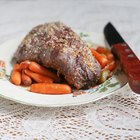
How to Make Marinade for Roast Beef
Can You Soak Pork Chops in Milk?
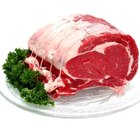
How to Marinate a Top Round Roast

Can You Tenderize Steak With Milk?
How to Slow Cook a Pot Roast With Beef ...
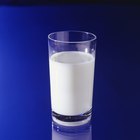
How to Freeze Goat's Milk

How to Slow Cook an Eye of Round Roast ...
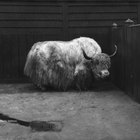
How to Cook Yak
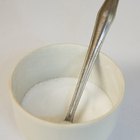
How to Brine a Smoked Beef Brisket
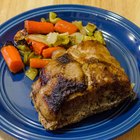
How to Cook Pork Roast in an Oven
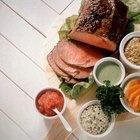
How to Sear a Roast Beef
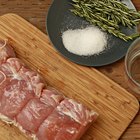
How to Brine Pork Roast
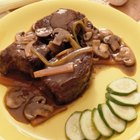
How to Use Leftover Marinade in Gravy
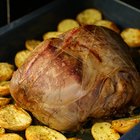
How Long Can You Freeze a Roast?
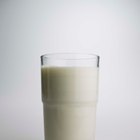
How to Cook With Lactaid

How to Cook an Elk Shoulder
How to Brine a Pheasant
The Best Way to Cook Bison Steak
References
- Fine Cooking: Marinades Add Flavor but Don't Always Tenderize
- What's Cooking America: Marinating Meat Guidelines -- Marinating 101
- The New York Times: Buttermilk-Marinated Wild Turkey with Peppery Milk Gravy
- Food and Wine: Lamb Steaks with Milk, Honey and Cumin Marinade
- Today: Food: Simply Southern: Buttermilk Marinated Pork Chops, More
Resources
Tips
- For an Indian-style roast, substitute yogurt for milk, or use coconut milk for a lighter flavor that complements tropical, Indian and Asian roasts. For a richer, more savory flavor, go with a buttermilk marinade.
- To add a sweet layer to a savory marinade, mix a bit of honey into your milk marinade. This creamy combo complements lamb and pork roasts in particular.
Writer Bio
With a diverse professional background and a decade of experience as a freelance writer, Dan has contributed lifestyle content -- from fashion to travel to fitness and more -- to publishers including Chron, Fortune, Sony, GlobalPost, ModernMom, Moviefone, Salon.com, Techwalla and dozens of others.